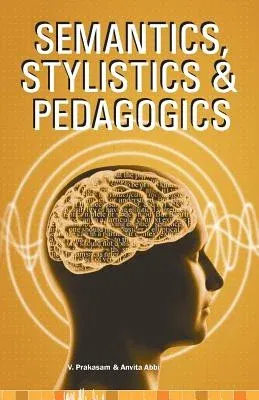Meaning, being the core of the existential reality of language, need to
be comprehended and analyzed, properly grasped and talked about. The
first part of this book, Semantics, Stylistics and Pedagogics, is
planned to strengthen our comprehension of the 'meaning' facet of
language at 'isolable' level (lexical) and also at 'combinatorial' level
(discoursal). The way 'meaning' is viewed and analyzed at different
times and in different intellecting traditions is presented in the first
three chapters which constitute the part called Semantics. The fourth
chapter constitutes the second part of the book--Stylistics--dealing
with the way 'meaning' is juiced out from a text. One can even say that
we actually juice out meaning for a text because the meaning is actually
a response from the aesthetic and cognitive capabilities of a reader. So
the 'grasping' of meaning of a text is again a dynamic process
comprising denotative, connotative and suggestive responses. The third
part of the book is 'Pedagogics' which subsumes 'androgogics' too. Here
we see how the language teacher who has comprehended and grasped
'meaning' conveys it to the student in the classroom. This conveying is
actually facilitating comprehension and grasping in the minds of the
students.


